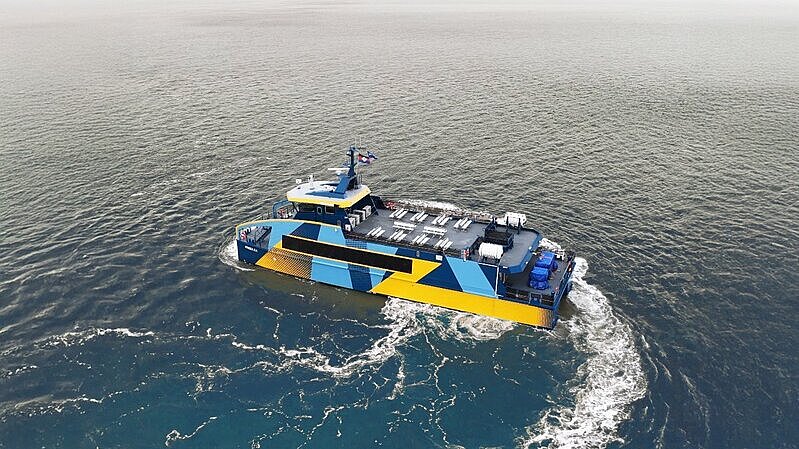
Naming ceremony for Germany’s first fully electric ferry

The route that the ferry will serve – between Norddeich and the island of Norderney on the East Frisian coast – called for the development of a unique vessel
(Source: Damen)
Reederei Norden-Frisia has held a naming ceremony for a fully electric catamaran ferry, Frisia E-1, built to a Damen Fast Ferry 3209 Electric design. Charged with electricity from onshore solar panels, the catamaran will be Germany’s first fully electric ferry, providing a carbon-neutral service.
The service on which the vessel will be deployed – a route between Norddeich and the island of Norderney on the East Frisian coast – has certain requirements. The shallow waters of the Wadden Sea mean that the ferry’s draught is limited to 1.2m.
Meanwhile, the Wadden Sea is a UNESCO World Heritage site with strict criteria governing maritime operations. These include low speeds.
However, despite this, the Damen-designed vessel will reduce current sailing times by half, transporting up to 150 passengers in just half an hour. The vessel will then be recharged during passenger operations in 28 minutes.
Damen’s sales manager for Germany, Joschka Böddeling, said: “Having been involved with this project from the outset, it is a pleasure to be here today to witness this special event. The naming of the Frisia E-I is a milestone moment in the operation of the first fully electric catamaran ferry in German waters. With this vessel, Reederei Norden-Frisia has sent a clear message, underscoring its commitment to a greener operation. This, and the many other steps that the company has taken in this direction, serve as commendable examples for us all. They are also a signal that, if we work together towards our goals, a sustainable maritime future is achievable.”
Reederei Norden-Frisia has ambitious sustainability targets. Apart from the new electric ferry service the company has set up and electric car and bicycle hire service for customers. It is also installing wind turbines and solar panels in car parks so that visitors can charge up their vehicles with sustainable energy before returning from a Frisian Islands visit.
